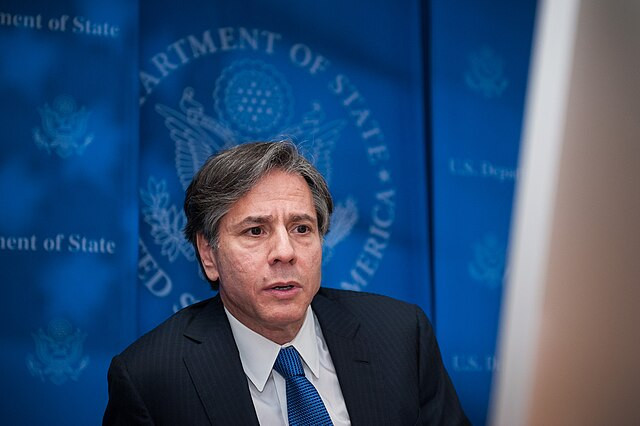In a crucial meeting on the sidelines of a regional summit in Vientiane, Laos, U.S. Secretary of State Antony Blinken and Chinese Foreign Minister Wang Yi tackled a series of contentious issues, including Taiwan, China's support for Russia in the Ukraine conflict, and maritime tensions in the South China Sea. This was their sixth meeting since June 2023, highlighting ongoing efforts to manage strained relations between the world's two largest economies.
During the 80-minute discussion, Blinken reiterated Washington's concerns over Beijing's actions toward Taiwan and its backing of Russia's war in Ukraine. A senior U.S. State Department official described the conversation as "open and productive" but noted that no significant agreements were reached.
Blinken underscored recent "provocative" actions by China, such as a simulated blockade during the inauguration of Taiwan President Lai Ching-te. "In every discussion, Taiwan is the issue that they care most about. They see it as ... an internal China issue," the official said. China views Taiwan as an inviolable part of its territory, a stance firmly rejected by Taiwan.
The meeting also addressed the sensitive issue of military-to-military ties. While both sides agreed to continue making progress, they did not discuss nuclear arms control talks, which China has halted in protest over U.S. arms sales to Taiwan.
Blinken stressed the importance of a stable U.S.-China relationship and a rules-based international order, echoing the sentiments of President Joe Biden and Vice President Kamala Harris. He also voiced concerns about China's support for Russia's defense industrial base, warning of further U.S. actions if Beijing does not curtail this support. The U.S. has already sanctioned China-based companies supplying semiconductors to Russia, aiming to undermine Moscow's military capabilities.
"There was no commitment by the Chinese to take action," the U.S. official noted, highlighting the ongoing challenges in securing Beijing's cooperation on this front. Blinken also addressed U.S. concerns over human rights in Hong Kong, Taiwan, and Tibet, and emphasized the need for more progress from Beijing on counter-narcotics efforts, including the issue of fentanyl precursors coming out of China.
The meeting between Blinken and Wang Yi came amid Blinken's broader tour of East Asia, aimed at reassuring U.S. allies of American commitment despite domestic political uncertainties. Blinken's itinerary includes stops in Vietnam, Japan, and the Philippines, where he will hold security talks alongside Defense Secretary Lloyd Austin.
While in Laos, Blinken praised a recent agreement between China and the Philippines that allowed the latter to make a supply trip to a disputed area in the South China Sea without confronting Chinese forces. "We are pleased to take note of the successful resupply today at the Second Thomas Shoal," Blinken told the Association of Southeast Asian Nations (ASEAN) foreign ministers.
Despite this positive note, Blinken condemned China's "escalatory and unlawful actions" in the South China Sea, affirming U.S. support for freedom of navigation and the peaceful resolution of disputes in accordance with international law.
Blinken's tour follows President Biden's announcement that he would not seek re-election, endorsing Vice President Kamala Harris as the Democratic candidate. Although this political shift was not a topic of discussion in the meetings, Blinken highlighted Harris's experience with China and her previous meeting with Chinese President Xi Jinping.
The U.S. remains wary of China's potential influence over global affairs through platforms like TikTok, as evidenced by recent legal actions against the social media giant for data privacy concerns. Blinken reiterated the administration's stance that U.S. interests and values, along with those of its allies and partners, would continue to be safeguarded.






